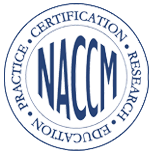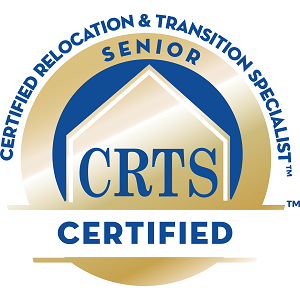Understanding the Types of Brain Injuries Affecting Seniors
When we think of brain injuries, we often associate them with high-impact sports or major accidents. However, a less recognized but equally important aspect is their prevalence in the senior population. Brain injuries in seniors are not only common but also particularly concerning due to their potentially severe impact on an already vulnerable group. Factors like reduced mobility, thinner blood vessel walls, and pre-existing health conditions can make seniors more prone to brain injuries, even from seemingly minor incidents.
Recognizing the signs, knowing the risks, and understanding the different types of brain injuries can make a significant difference in prevention, treatment, and care. This article aims to shed light on the various types of brain injuries, delving into their causes, symptoms, and the unique ways they can affect the senior population. By increasing our knowledge, we can better protect and care for our elderly loved ones, helping them maintain their health and dignity in the face of these challenges.
Understanding Brain Injuries in Seniors
Brain injuries in the elderly represent a significant health concern that often goes under-recognized. As the population ages, the incidence of brain injuries among seniors has become increasingly prominent. Studies have shown that falls, which are the leading cause of brain injuries in the elderly, account for a substantial number of emergency room visits and hospitalizations each year. In fact, the Centers for Disease Control and Prevention (CDC) reports that one in every four Americans aged 65 and older falls each year, with a significant percentage of these falls leading to head injuries.
The implications of brain injuries in this age group are particularly severe due to age-related physiological changes. Older adults have a decreased ability to recover from injuries, and a brain injury can exacerbate existing health conditions, leading to a longer recovery period or permanent damage. Additionally, seniors may not always recognize or report symptoms of a brain injury, attributing them to general aging, which can delay diagnosis and treatment.
Types of Brain Injuries that Affect Seniors
Brain injuries in seniors can take various forms, each with its own causes, symptoms, and consequences. Understanding these different types of brain injuries is crucial for timely and effective diagnosis and treatment. This section will explore some of the most common brain injuries that affect the elderly, focusing on their specifics and their impact on this vulnerable population.
Traumatic Brain Injury (TBI)
Traumatic Brain Injury (TBI) in seniors typically results from a sudden trauma that causes damage to the brain. This can occur from a fall, a car accident, or any incident where the head is suddenly and violently hit or jolted. TBI is a significant concern for the elderly due to their increased risk of falls and the likelihood of complications arising from such injuries.
The symptoms of TBI in older adults can vary widely, from mild cases with brief changes in mental status or consciousness to severe cases with extended periods of unconsciousness or memory loss. Common signs include confusion, dizziness, headache, and in more severe cases, changes in speech, coordination, and cognitive function. The consequences of TBI in seniors can be particularly severe, potentially leading to long-term cognitive impairment, physical disability, and an increased need for long-term care.
Stroke
A stroke is a type of brain injury that occurs when the blood supply to part of the brain is interrupted or reduced, preventing brain tissue from getting oxygen and nutrients. Strokes are a leading cause of disability in older adults and can have lasting physical, cognitive, and emotional effects.
There are two main types of strokes: ischemic and hemorrhagic. Ischemic strokes, the most common type, occur when a blood vessel supplying the brain is obstructed, often by a blood clot. Hemorrhagic strokes happen when a blood vessel in the brain leaks or ruptures. Both types can cause significant damage to the brain, leading to symptoms such as sudden weakness or numbness on one side of the body, confusion, trouble speaking, vision problems, and severe headaches. The impact of a stroke on a senior depends on the stroke’s location and severity but can range from mild impairment to severe disability.
Dementia-Related Brain Injuries
Dementia-related brain injuries are a significant concern in the senior population, encompassing a range of conditions that lead to a gradual decline in cognitive function. These injuries are characterized by the progressive deterioration of brain cells, often linked to diseases like Alzheimer’s and vascular dementia. Unlike TBIs or strokes, the onset of dementia-related brain injuries is typically slow and insidious, making early diagnosis challenging.
Symptoms of dementia-related brain injuries include memory loss, confusion, difficulty in performing familiar tasks, language problems, and changes in personality and behavior. As the condition progresses, it can lead to severe impairment in cognitive and physical functions. While the exact cause of dementia is often unclear, factors such as age, genetics, and overall brain health play a role. Managing dementia involves a comprehensive approach focusing on symptom management, support, and improving the quality of life for the affected individuals.
Hypoxic-Anoxic Brain Injury (HAI)
Hypoxic-Anoxic Brain Injury (HAI) refers to damage caused to the brain due to a lack of oxygen. Hypoxic injuries occur when there is a reduction in oxygen flow, while anoxic injuries happen when the brain is completely deprived of oxygen. In seniors, HAIs can occur due to various reasons, including cardiac arrest, severe drops in blood pressure, or complications from medical procedures.
The impact of HAI on seniors can range from mild cognitive and motor impairments to severe and irreversible brain damage. The symptoms and severity depend on the duration of the oxygen deprivation and the parts of the brain affected. Common symptoms include confusion, memory loss, difficulty concentrating, and in more severe cases, loss of consciousness or coma. Recovery from HAI can be a lengthy process and may require rehabilitation to regain lost cognitive and motor functions.
Recognizing the Gravity of Brain Injuries in Seniors
In conclusion, recognizing the signs and implications of brain injuries in seniors is crucial for ensuring timely and effective care. This knowledge helps families and caregivers be better equipped to provide the best support and understanding to their elderly loved ones.
At Reflections Management and Care, we understand the complexities and challenges that come with caring for a senior with a brain injury. Our team of experienced professionals is here to offer support, guidance, and expert care. If you or your loved one is dealing with the effects of a brain injury, reach out to Reflections Management and Care today. Let us help you navigate this journey with the expertise, compassion, and dedicated care that you and your family deserve.














